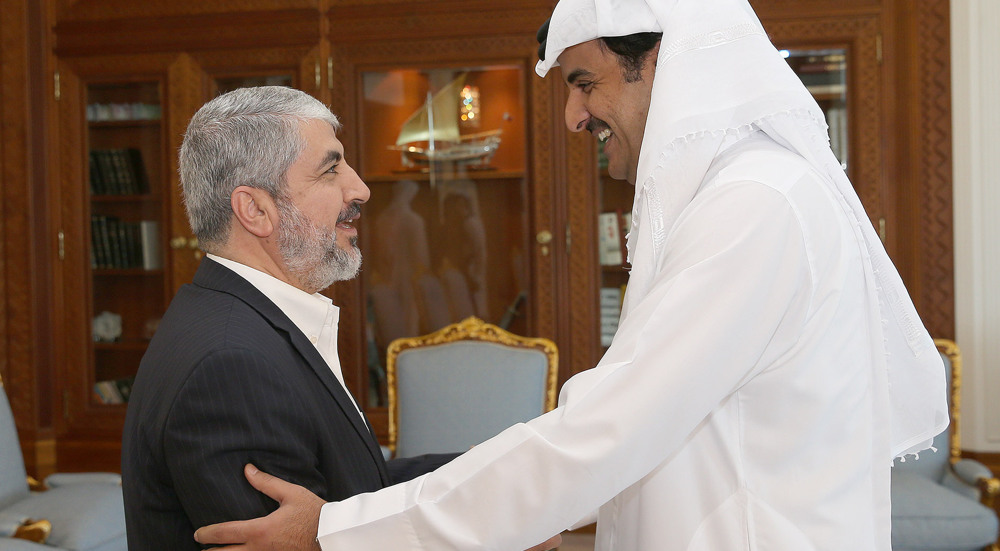Top Bahraini dissident’s health in danger due to medical negligence: Activist
A Bahraini human rights activist has expressed concern over the deteriorating health condition of prominent opposition figure and pro-democracy campaigner Nabeel Rajab, saying he has been denied proper medical treatment.
Zainab al-Khamees, a member of the Bahrain Human Rights Society (BHRS), wrote in a Twitter post on Saturday that even though Bahrain was a party to the International Covenant on Civil and Political Rights (ICCPR), there were still reports of abuse and mistreatment of prisoners in Bahraini jails, particularly Jaw Prison.
Khamees added that Bahraini officials had restricted inmates’ access to health care and in the case of the 53-year-old president of the Bahrain Center for Human Rights, he had been long suffering from agonizing pains and nausea.
She noted that Rajab reserved the right to a doctor and appropriate treatment.
On February 21, a court in Bahrain sentenced the distinguished human rights activist to five years in prison over tweets deemed critical of the Manama regime and the deadly Saudi-led war against Yemen.
Bahrain’s Court of Cassation, which has the ultimate say in the case of appeals in the country, also upheld a two-year jail sentence against Rajab on January 15.
He faces a further 15 years in prison over a separate set of charges related to his criticism of the ruling Al Khalifah family and Wahhabism.
On December 22, 2016, Bahraini authorities accused Rajab of making comments that “harm the interests” of the Manama regime and other Persian Gulf kingdoms through an article attributed to him and published by French daily Le Monde.
The article slammed the Daesh Takfiri terrorist group for its crimes against humanity. It also condemned Persian Gulf Arab countries for their failure to stop the spread of the violent Wahhabi ideology.
Wahhabism, the radical ideology dominating Saudi Arabia and freely preached by its clerics, fuels the ideological engine of terror organizations such as Daesh and Fateh al-Sham, al-Qaeda's Syrian branch formerly known as al-Nusra Front. Takfiri terrorists use the ideology to declare people of other faiths “infidels,” justifying the killing of their victims.
Rajab, who was detained on June 13, 2016 for tweets that criticized Manama’s role in the deadly Saudi-led military campaign against Yemen, could face up to 15 years in jail.
Liz Throssell, the spokeswoman for the UN High Commissioner for Human Rights, said in a statement that Rajab was arrested for “exercising his right to freedom of expression.”
Thousands of anti-regime protesters have held demonstrations in Bahrain on an almost daily basis ever since a popular uprising began in the country in mid-February 2011.
They are demanding that the Al Khalifah dynasty relinquish power and allow a just system representing all Bahrainis to be established.
Manama has gone to great lengths to clamp down on any sign of dissent. On March 14, 2011, troops from Saudi Arabia and the United Arab Emirates were deployed to assist Bahrain in its crackdown.
Scores of people have lost their lives and hundreds of others sustained injuries or got arrested as a result of the Al Khalifah regime’s crackdown.
On March 5, 2017, Bahrain’s parliament approved the trial of civilians at military tribunals in a measure blasted by human rights campaigners as being tantamount to imposition of an undeclared martial law countrywide.
Bahraini monarch King Hamad bin Isa Al Khalifah ratified the constitutional amendment on April 3 last year.
Hezbollah breaks record of anti-Israel ops; four million settlers run for their lives
Iran rejects involvement in murder of Israeli rabbi in UAE
‘Israel at dead end’: Army chief vows Iran’s lasting support for resistance
Hezbollah executes record 51 military operations against Israel in a single day
VIDEO | Intl. day to end anti-women violence: Female victims of Israeli attacks on Gaza, Lebanon remembered
Leader: Arrest warrant not enough, Netanyahu must be executed
VIDEO | Iraqi fighters conduct fresh retaliatory attacks on vital Israeli targets
Gaza hospital chief calls for help amid Israel’s ‘extermination campaign’

















 This makes it easy to access the Press TV website
This makes it easy to access the Press TV website